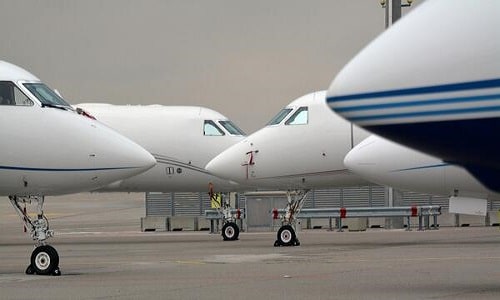Adulterated Aviation Kerosene, commonly known as Jet A1, has been circulating airports in Lagos, Kano, and Abuja.
The issue came to light when the Nigerian Civil Aviation Authority (NCAA) suspended all Boeing 737 aircraft owned by Max Air last week after water was discovered in the fuel tank of one of its planes.
Following the discovery of the contaminated fuel, NCAA said they are holding airlines and pilots responsible, making them accountable for the quality of fuel used in their aircraft.

In response to the incident, Prof. Obiora Okonkwo, the Chairman of United Nigeria Airlines (UNA), called on the NCAA to conduct a thorough audit of the fuel suppliers nationwide.
NCAA in an All Operator's Letter cited by RocketParrot alerted all operators about the risks and hazards associated with aircraft refuelling.
A team of investigators was dispatched to Lagos, Kano, and Abuja to assess the refuelling aviation facilities used by the airline before the incident occurred.
The letter, signed by the Director of Airworthiness Standards of NCAA, Gbolahan Abatan, emphasized the critical importance of aircraft refuelling safety procedures and precautions.
Water contamination was highlighted as a significant concern, and the NCAA has been receiving reports from airlines and operators about water being found in aircraft fuel tanks.
To address this issue, the NCAA advised all airlines and operators to enhance their refuelling procedures as outlined in their maintenance control manuals, refuelling manuals, fuel suppliers' operation manuals and quality control manuals.
The suggested procedures include inspecting aircraft refuelling equipment and conducting visual inspections of fuel hoses, gauges, tires, and the truck's overall body.
Additionally, the NCAA stressed the importance of testing and checking the jet fuel quality before refuelling, with particular attention to the presence of water in the fuel.




















